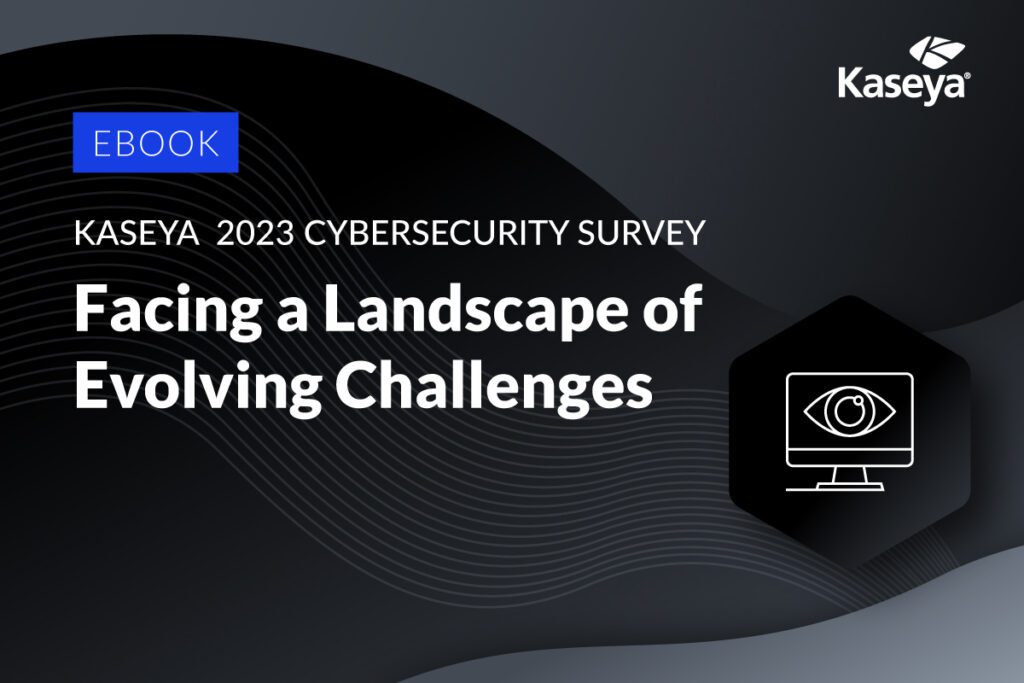Don’t Miss Out on These 5 Major Benefits of Penetration Testing

Sleeping on these perks of pen testing is a mistake
In an era where cyberthreats loom large and digital landscapes are constantly under siege, organizations are increasingly turning to proactive measures to fortify their defenses. One such indispensable tool in the cybersecurity arsenal is penetration testing or pen testing. This simulated cyberattack allows businesses to assess their vulnerabilities and weaknesses, providing a comprehensive understanding of their security posture. However, beyond being just a mere exercise in identifying flaws, pen testing offers a myriad of benefits that extend far beyond the immediate quest for security. A deep dive into the world of penetration testing reveals the invaluable advantages that organizations stand to gain from embracing this proactive approach to cybersecurity.
Excerpted in part from The Network Penetration Testing Buyer’s Guide DOWNLOAD IT>>
What is the difference between pen testing and a vulnerability assessment?
While vulnerability assessments and penetration tests are both critical components of cybersecurity, they serve distinct purposes within the realm of proactive security measures.
- A vulnerability assessment involves the systematic identification, quantification and prioritization of potential security weaknesses in a system, network or application. It aims to provide a comprehensive overview of vulnerabilities without actively exploiting them.
- A penetration test, sometimes called ethical hacking, goes a step further by simulating real-world attacks to exploit identified vulnerabilities and assess the effectiveness of existing security controls.
Both are valuable tools, but penetration testing goes much deeper than a simple vulnerability assessment. While a vulnerability assessment is more focused on discovering and cataloging potential weaknesses, a penetration test emulates the actions of a malicious actor to evaluate the system’s resilience and uncover any potential weaknesses that a threat actor could exploit.

See the challenges companies face & how they’re overcoming them in our Kaseya Security Survey Report 2023 DOWNLOAD IT>>
5 unbeatable benefits of pen testing
In a recent study of pen testing on corporate information systems, researchers discovered that 86% of the companies assessed had “insufficient protection of web applications” as a common attack vector, clearly demonstrating why conducting IT security assessments must be a priority for businesses. Companies gain many defensive advantages from regular penetration testing, including these five big benefits.
1. Identification of vulnerabilities
Penetration testing serves as a proactive detective, uncovering hidden vulnerabilities that may lurk within an organization’s digital infrastructure. By simulating real-world cyberattacks, businesses gain insights into potential weak points in their systems, networks and applications. This early detection empowers organizations to patch and fortify their defenses before malicious actors can exploit these potentially devastating security gaps.
2. Risk mitigation and prioritization
Understanding vulnerabilities is only the first step; the real value lies in the ability to prioritize and mitigate risks effectively. Pen testing provides a roadmap for organizations to address vulnerabilities based on their severity and potential impact. This strategic approach ensures that resources are allocated efficiently, focusing on the most critical areas to maximize the impact of cybersecurity efforts.
3. Compliance confidence
In an era of stringent data protection regulations, compliance is non-negotiable. Penetration testing not only helps organizations meet regulatory requirements but also demonstrates a commitment to safeguarding sensitive information. Many insurers also require penetration testing. These days, regulatory and industry compliance is not just a box to tick; it’s a testament to an organization’s dedication to maintaining the highest standards of data security.

Explore how AI technology helps businesses mount a strong defense against phishing GET INFOGRAPHIC>>
4. Enhanced incident response planning
Preparing for the inevitable is a cornerstone of effective cybersecurity. Penetration testing allows organizations to refine their incident response plans by identifying potential points of failure and weaknesses in their current strategies. This is especially important for ensuring that a company is prepared to deal with dangerous emerging threats. By rehearsing responses to simulated attacks, teams can fine-tune their reaction times, minimizing the impact of a real cybersecurity incident. Enhanced incident response planning can also make incidents cheaper and limit expensive downtime, a must in today’s volatile threat landscape.
5. Stakeholder confidence and reputation protection
In an age where trust is paramount, a breach can have far-reaching consequences beyond financial losses. Penetration testing helps organizations demonstrate their commitment to cybersecurity to clients, partners and stakeholders. Proactively ensuring the security of sensitive information fosters trust, protects reputations and bolsters the overall resilience of any business. Companies today must pay attention to supply chain risk. Service providers and suppliers who can give material evidence that they take cybersecurity seriously become more attractive partners.

Explore the nuts and bolts of ransomware and see how a business falls victim to an attack. GET EBOOK>>
Intelligence is a key part of any defensive strategy
IT security testing is an invaluable tool for organizations to employ to find weaknesses in their security buildout. In the Kaseya Cybersecurity Survey 2023, we asked IT professionals how frequently their company conducts defensive testing like vulnerability assessments and penetration testing. Over half of our survey respondents (52%) said that their company conducts assessments two to four times per year. Another fifth (20%) said that their employer conducts assessments only once per year. Even worse, 8% of respondents conduct assessments only every two to five years.
Approximately how frequently does your organization conduct IT security vulnerability assessments?
| Frequency of assessments | Response |
| Twice per year | 29% |
| 3 to 4 times per year | 23% |
| Once per year | 20% |
| More than 4 times per year | 15% |
| Once every 2 to 4 years | 6% |
| Once every 5 years or longer | 2% |
| Never | 2% |
| I don’t know | 2% |
Source: Kaseya Security Survey Report 2023

Learn how Datto EDR satisfies cyber insurance requirements for endpoint protection & EDR. DOWNLOAD REPORT>>
Pen testing isn’t expensive or complicated anymore
In today’s turbulent and fast-evolving threat landscape, companies need every advantage they can get to stay ahead of cyberthreats. From ChatGPT-enabled phishing attacks to emerging fileless malware, the arsenal of cybercriminals is ever-expanding. Cost was once a barrier to increasing the frequency of IT security testing like vulnerability assessments or penetration testing. According to Tech Republic, one in three companies cited cost as the reason why they don’t conduct more frequent assessments through pen testing. However, pen testing isn’t as complex or expensive a process as it used to be. Automated testing solutions are a game changer. Now companies can quickly, easily and affordably run assessments like penetration tests frequently.
Penetration testing not only acts as a crucial pre-emptive strike against potential attackers, but also instills a culture of continuous improvement and vigilance. The cyberthreat landscape is constantly evolving, with new threats and zero-day exploits popping up every day. By embracing the benefits of pen testing, organizations can navigate the digital landscape with confidence, knowing that they have fortified their defenses against the ever-present specter of cyberthreats.

Follow the path to see how Managed SOC heroically defends businesses from cyberattacks. GET INFOGRAPHIC>>
Start pen testing regularly now and thank us later
Network penetration testing should no longer be viewed as a one-time, compliance-driven effort. The ever-changing threat landscape necessitates an ongoing practice to ensure network security and threat readiness. By embracing on-demand testing and reaping the benefits of security automation, organizations can proactively protect their networks and data to ensure they’re ready for current and future threats.
vPenTest from Vonahi offers businesses an array of unbeatable benefits to help them stay ahead of bad actors and quickly find security flaws like vulnerabilities. Some of the major advantages include:
- Conducting of internal or external network penetration testing on a monthly basis instead of annually.
- Saving more than 60% of the cost of a traditional or manual network penetration test.
- Real-time monitoring of network penetration testing and its progress.
- Meeting compliance requirements for regulated industries, like PCI-DSS, HIPAA, SOC2 and cyber insurance requirements.
- Peace of mind knowing that vPenTest is backed by OSCP and OSCE-certified consultants with over 10 years of experience.
Learn more about vPenTest LEARN MORE>>
Download a data sheet about vPenTest DOWNLOAD IT>>

Read case studies of MSPs and businesses that have conquered challenges using Kaseya’s Security Suite. SEE CASE STUDIES>>

Our Partners typically realize ROI in 30 days or less. Contact us today to learn why 3,850 MSPs in 30+ countries choose to Partner with ID Agent!
Check out an on-demand video demo of BullPhish ID or Dark Web ID WATCH NOW>>
See Graphus in action in an on-demand video demo WATCH NOW>>
Book your demo of Dark Web ID, BullPhish ID, RocketCyber or Graphus now!